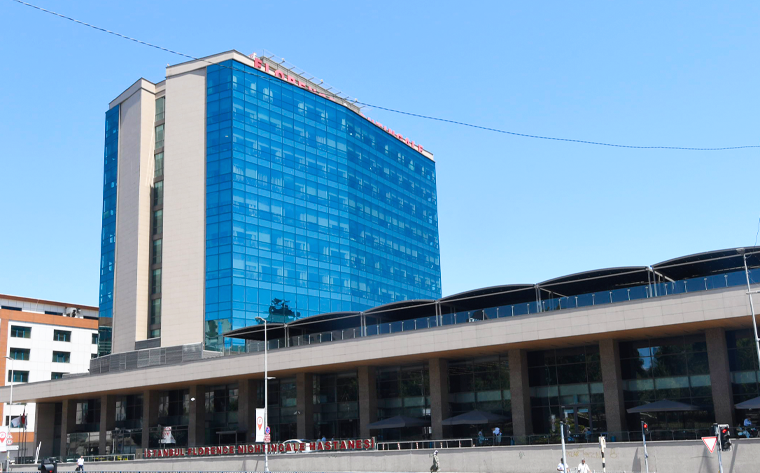
What is a Kidney Transplant Center, What are the Diseases Treated?
About Kidney Transplant Center Kidney Transplant Center is a health institution where serious kidney diseases such as kidney failure are treated and kidney transplantation is performed on patients. These centers are places where vital treatments are applied so that patients whose quality of life has seriously decreased due to kidney failure can continue their lives. Kidney transplant is one of the most effective treatment methods for patients whose kidney functions have been irreversibly lost. In these centers, the aim is to ensure that patients live a healthy life with the transplantation of donor kidneys.
Who are the Specialists in the Kidney Transplant Center and What Are Their Duties?
Kidney Transplant Centers are places where many specialists come together, working in a multidisciplinary approach. These specialists include nephrologists, transplant surgeons, anesthesiologists, immunologists, nurses, dietitians and psychologists.
Each specialist has a specific role in this process:- Nephrologists: They monitor kidney function, prepare patients for transplantation, and treat kidney failure.
- Transplant Surgeons: They perform the transplant operation and take care of the patient after the surgery.
- Anesthesiologists: Responsible for administering anesthesia during transplant surgery and ensuring the patient is asleep safely during surgery.
- Immunologists: Monitor the body's immune responses after the transplant to try to minimize the risk of rejection.
- Dietitians: Plan patients' diets and help them maintain a healthy life after the transplant.
- Psychologists: They ensure that patients receive psychological support before and after transplantation.
What is done at the Kidney Transplant Center?
At the Kidney Transplant Center, every stage of the treatment process for patients with kidney failure is meticulously planned and carried out. The main procedures and services performed at these centers are as follows:
Patient Evaluation- The first step is to evaluate whether patients diagnosed with kidney failure are suitable for transplantation. During this process, the general health status of the patients, kidney functions, tissue compatibility and other health parameters are examined in detail.
- The patient's suitability for kidney transplantation is determined using the necessary blood tests, urine tests and imaging methods.
- Finding a suitable donor is one of the most critical steps in the kidney transplantation process. The Kidney Transplant Center evaluates organs from both living and deceased donors.
- The most suitable donor is matched with the patient, taking into account tissue compatibility, blood type and other genetic factors.
- Once a suitable donor is found, the transplant operation is planned. During this process, the patient is prepared for the operation under the guidance of the surgical team.
- During the operation, the donor kidney is placed in the patient's body and is allowed to take over the functions of the old kidney. The surgery is usually performed under general anesthesia and can take several hours.
- After the transplant, the patient's condition is intensively monitored. During this period, whether the new kidney is accepted by the body, possible complications and the patient's general health are closely monitored.
- The patient is given immunosuppressive drugs to help prevent rejection of the transplanted kidney.
- After a kidney transplant, patients' long-term health is monitored. Regular doctor check-ups, blood tests, and imaging studies are used to monitor the functionality of the new kidney and the patient's general health.
- During the post-transplant period, continuous monitoring is performed to early detect possible infections, medication side effects, or deterioration in kidney function.
- After a kidney transplant, patients may need to make some lifestyle changes, especially regarding diet, medication, exercise, and general health care.
- Dietitians and other health professionals provide the guidance needed to help patients live healthy lives.
All these procedures performed at the Kidney Transplant Center are performed in accordance with the best medical care standards to ensure that patients lead a healthy life.
What are the Kidney Transplant Center Diagnostic Methods?
During the kidney transplantation process, various diagnostic methods are used to evaluate the general health status of patients. These methods include blood tests, imaging methods (ultrasound, CT, MRI), kidney function tests, and immune system evaluations. In addition, the psychological state of patients can be evaluated.
What are the procedures and examinations performed at the Kidney Transplant Center?
There are many procedures and tests during the kidney transplant process. First, the patients' kidney functions are examined in detail and it is determined whether they are suitable for transplantation. After the transplant, whether the patients accept the new kidney, their immune system reactions and general health status are regularly monitored. During this process, tests such as biopsy may also be performed.
What are the diseases treated at the Kidney Transplant Center?
Kidney Transplantation Centers treat various kidney diseases, especially chronic renal failure. These diseases include glomerulonephritis, polycystic kidney disease, diabetic nephropathy, hypertensive nephropathy and other chronic kidney diseases. After transplantation, the aim is to improve the general health status of the patients and increase their quality of life.
What Tests Are Performed at the Kidney Transplant Center?
Many tests are performed before and after a kidney transplant. These include blood tests, urine tests, kidney function tests, histocompatibility tests, immune system tests, and imaging methods. These tests determine whether patients are suitable for transplantation and allow for the early detection of any complications after transplantation.
What Health Technologies Are Used in the Kidney Transplant Center?
Kidney Transplant Centers use modern medical technologies to provide the best possible treatment for patients. These technologies include laparoscopic surgery, advanced imaging techniques, immunological tests, post-transplant monitoring systems, and immunosuppressive drugs. These technologies are critical to increasing the success of kidney transplantation and improving the quality of life of patients.



